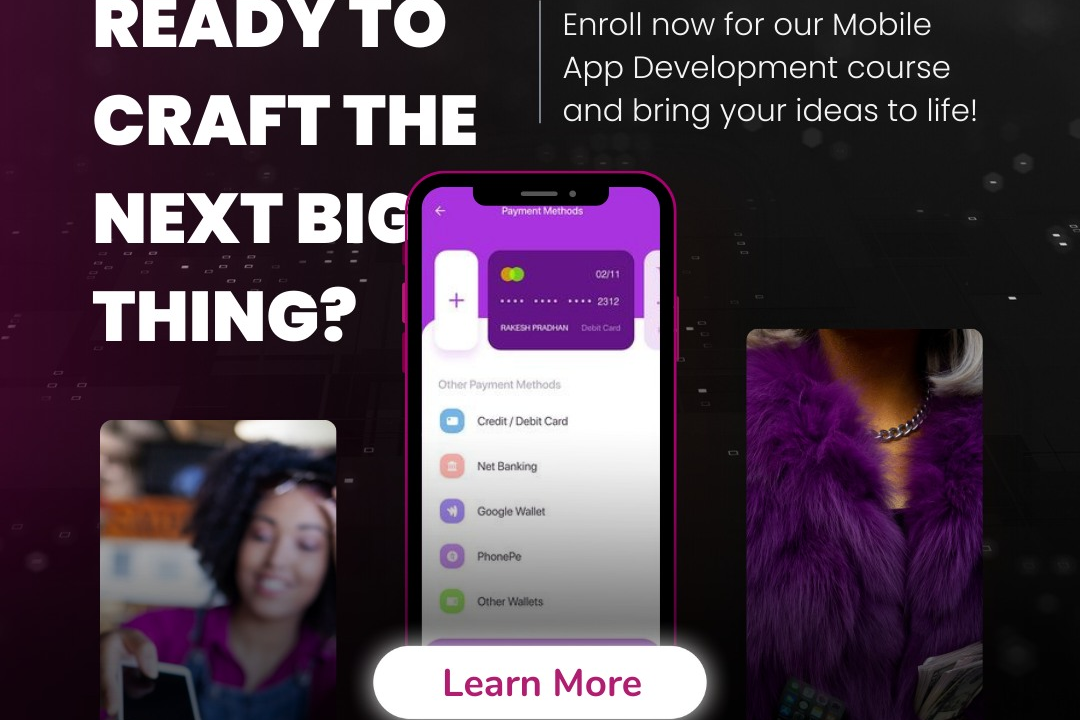Android EBooks And Guides
Essential Android eBooks and Guides
Android EBooks And Guides
Android eBooks and guides serve as comprehensive resources for users looking to enhance their understanding and skills within the Android operating system. These digital publications cover a wide range of topics, from basic setup and app management to advanced programming techniques for app development. They often include step-by-step tutorials, troubleshooting tips, and insights into the latest features and updates of the Android platform. eBooks and guides cater to various skill levels, making them useful for beginners seeking to navigate their devices effectively, as well as for developers looking to refine their coding skills and create high-quality applications. With the convenience of mobile access, users can easily reference these materials whenever needed, making learning about Android both accessible and practical.
To Download Our Brochure: https://www.justacademy.co/download-brochure-for-free
Message us for more information: +91 9987184296
1 - Introduction to Android Development: Understanding the basics of Android, its architecture, and the components that make up an Android application, including Activities, Services, Broadcast Receivers, and Content Providers.
2) Setting Up the Development Environment: Guidance on how to install Android Studio, the official IDE for Android development, and configure it for optimal use including emulators for testing.
3) Understanding Java/Kotlin: Introduction to Java and Kotlin programming languages, which are the primary languages used for Android development. This includes syntax, data types, and object oriented programming concepts.
4) Building User Interfaces with XML: Learning how to create layouts using XML, including understanding views, view groups, and how to apply styles and themes.
5) Android Manifest File: Explanation of the role of the AndroidManifest.xml file, how to declare activities, permissions, and other application components.
6) Handling User Input: Teaching how to work with user input through various UI elements like buttons, text fields, checkboxes, and handling events.
7) Data Storage Options: Overview of different data storage solutions available in Android Shared Preferences, SQLite databases, and Room Persistence Library.
8) Networking in Android: Introduction to making network requests using libraries like Retrofit, handling APIs, and parsing JSON data.
9) Working with Multimedia: Understanding how to incorporate multimedia elements into apps, such as images, audio, and video playback using available APIs.
10) Location Services: Teaching how to implement location based services in Android apps, including access to GPS and Google Maps integration.
11) Using Android Libraries: Familiarizing students with essential third party libraries (e.g., Glide for image loading, Gson for JSON parsing) to improve app functionality.
12) App Lifecycle Management: Educating on the Android activity lifecycle, fragment lifecycle, and best practices for managing state and user experience.
13) Debugging and Testing: Demonstrating how to use the debugging tools available in Android Studio, writing unit tests, and using frameworks like Espresso for UI testing.
14) Deployment and Publishing: Guidance on how to prepare an app for release, including signing the APK, and the steps required to publish on the Google Play Store.
15) Continuous Learning and Resources: Emphasizing the importance of keeping up to date with Android development through official documentation, forums, and continuous practice.
16) Project Based Learning: Highlighting the importance of hands on experience by developing simple Android projects to reinforce the skills learned throughout the program.
17) Building a Portfolio: Teaching students how to create a portfolio showcasing their completed projects, which can be beneficial for job applications and internships.
18) Community and Networking: Encouraging students to join Android development communities, attend meetups, and engage in online forums for networking and support.
19) Future Trends in Android Development: Discussing the latest trends in mobile development such as Jetpack Compose, Flutter, and the rise of cross platform development.
These points create a well rounded educational framework for students interested in pursuing Android development through eBooks and guides, aiming to equip them with the necessary knowledge and practical skills.
Browse our course links : https://www.justacademy.co/all-courses
To Join our FREE DEMO Session: Click Here
Contact Us for more info:
python training in ahmedabad
salesforce adm 201 course
project management academy
artificial intelligence and machine learning training
PMP certification boot camp











